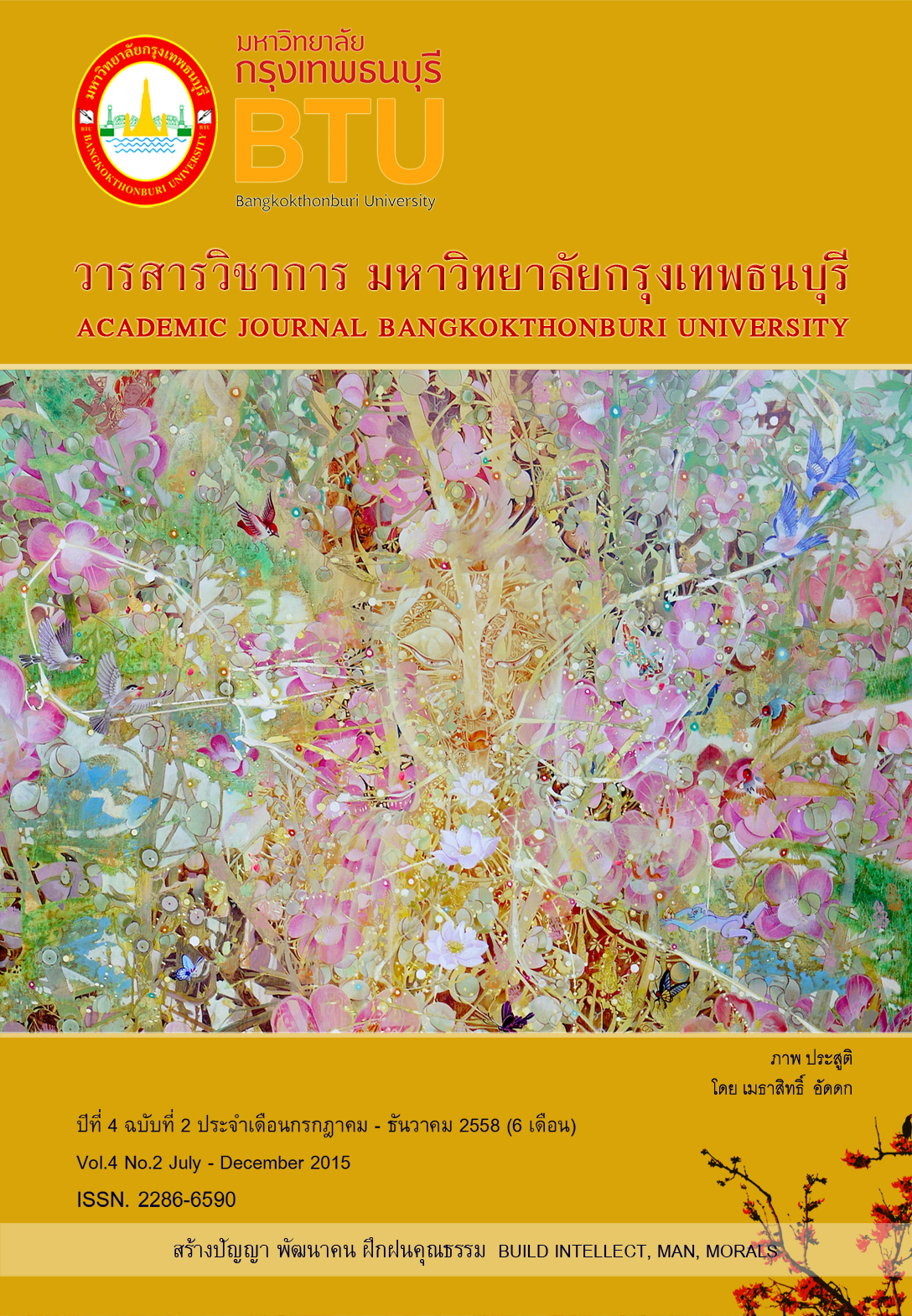การเสริมสร้างธรรมาภิบาลการปกครองส่วนท้องถิ่น
Main Article Content
Abstract
บทคัดย่อ
การวิจัยครั้งนี้มีวัตถุประสงค์ 1) เพื่อศึกษาระดับความคิดเห็นของประชาชนต่อการเสริมสร้างธรรมาภิบาลการปกครองส่วนท้องถิ่น ของเทศบาลตำบลเกาะคา อำเภอเกาะคา จังหวัดลำปาง 2) เพื่อศึกษาข้อเสนอแนะต่อการเสริมสร้างธรรมาภิบาลการปกครองส่วนท้องถิ่น ของเทศบาลตำบลเกาะคา อำเภอเกาะคา จังหวัดลำปาง กลุ่มตัวอย่างที่ใช้ในการศึกษาครั้งนี้ คือ ประชาชนซึ่งอยู่ในพื้นที่เทศบาลตำบลเกาะคา อำเภอเกาะคา จังหวัดลำปาง ที่มีอายุ 18 ปีขึ้นไป จำนวน 380 คน กำหนดขนาดกลุ่มตัวอย่างโดยใช้สูตรของ Taro Yamane เครื่องมือที่ใช้ในการรวบรวมข้อมูลเป็นแบบสอบถามแบบมาตราส่วนประมาณค่า 5 ระดับ สถิติที่ใช้วิเคราะห์ข้อมูลได้แก่ ค่าความถี่ ค่าร้อยละ ค่าเฉลี่ยและ ค่าส่วนเบี่ยงเบนมาตรฐาน
ผลการศึกษาพบว่า
1.ระดับความคิดเห็นต่อการเสริมสร้างธรรมาภิบาลการปกครองส่วนท้องถิ่น ของเทศบาลตำบลเกาะคา อำเภอเกาะคา จังหวัดลำปางโดยภาพรวม อยู่ในระดับมากที่สุด และเมื่อพิจารณาเป็นรายด้านพบว่า ด้านหลักคุณธรรม ด้านหลักการมีส่วนร่วม ด้านหลักความโปร่งใส ด้านหลักความรับผิดชอบ อยู่ในระดับมากที่สุด ส่วนด้านหลักนิติธรรมกับ ด้านหลักความคุ้มค่า อยู่ในระดับมาก 2. ข้อเสนอแนะของประชาชนต่อการเสริมสร้างธรรมาภิบาลการปกครองส่วนท้องถิ่น ของเทศบาลตำบลเกาะคา อำเภอเกาะคา จังหวัดลำปาง คือ 1) ด้านหลักนิติธรรม ควรเพิ่มการประชาสัมพันธ์ให้ประชาชนได้มีความรู้ความเข้าใจเกี่ยวกับกฎหมาย ระเบียบ ข้อบังคับต่างๆที่เกี่ยวกับประชาชน เพื่อให้ประชาชนปฏิบัติตามได้ง่าย มีการเตรียมตัวและเอกสารให้พร้อมก่อนมาติดต่องาน ทำให้เกิดความรวดเร็วและประหยัดเวลา และ 2) ด้านหลักความคุ้มค่า ควรประชาสัมพันธ์ให้ประชาชนร่วมมือในการใช้ทรัพยากรธรรมชาติที่มีอยู่ในท้องถิ่นอย่างระมัดระวัง เช่น น้ำ เพื่อให้เพียงพอต่อการใช้อุปโภคบริโภคและเพื่อการเกษตร การลดปริมาณขยะจากครัวเรือนเพื่อรักษาสิ่งแวดล้อม เป็นต้น
Abstract
The objectives of the study were twofold : 1) to determine the people’s opinions toward the creation of the good governance in public service of local administration of Kohkha Sub-District Municipality, Kohkha District, Lampang Province; and 2) to acquire recommendations for the creation of good governance in public service. 380 people aged 18 years and over living in the area under the jurisdiction of the municipality comprised the sample for the study; the sample size was determined by resorting to Yamane’s formula. The study tool was a set of self-administered questionnaires containing questions with a 5 - point, rating scale.
The study tool had the reliability coefficient of 0.94. The collected data were analyzed by means of the descriptive statistics (frequency, percentage, mean and standard deviation).
As a result of the qualitative data analysis, the researcher has discovered the following facts :
(1) Holistically, the people’s opinions toward the creation of good governance in public service were found to be at a high level. Separately, the people’s opinions toward the following dimensions of good governance were found to be at the highest levels : principle of morality, principle of participation, principle of transparency and principle of accountability. Meanwhile, the following dimensions of good governance were found to be at high levels : rule of law and cost-effectiveness.
(2) With respect to the recommendations on the creation of good governance made by the people, they were as follows:
1. On the rule of law, attempts should be made to keep the people well informed about laws and regulations so that they could easily abide by them. In this regard, all related documents should be made available to the service users. As a result, the people’s dealings with the government agencies would be expedient.
2. On the principle of cost-effectiveness, it is deemed essential that people be persuaded to cooperate in using local resources conscientiously; these resources are, among others, water for consumption and water for agriculture; moreover, garbages from households should be properly managed so as to keep the environment clean all the time.


